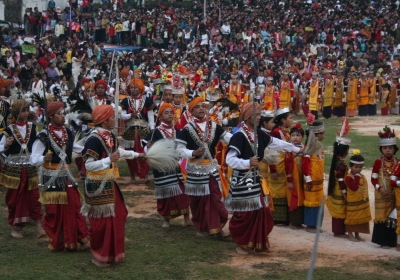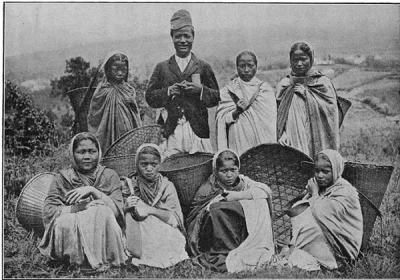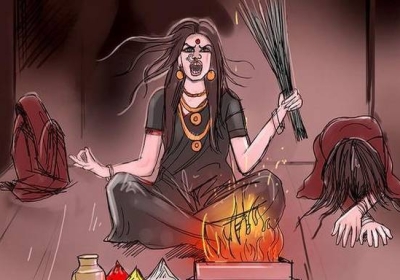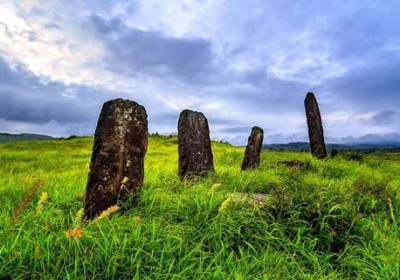KHASI MATRILINEAL CLAN LINEAGE: THE CHRISTIAN INFLUENCE ON MATRILINY
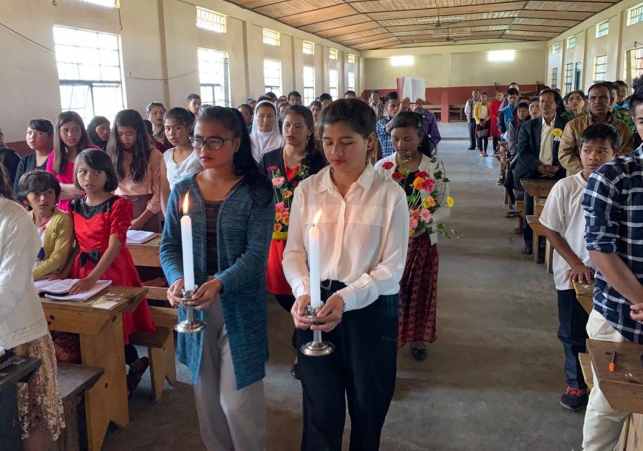
The emergence of Christianity had initially faced stringent resistance from the indigenous people of the region because of the alien nature of western culture and tradition. However, the missionary zeal of the Welsh Calvinistic Presbyterian church have captivated the souls of some Khasi people initially with the social welfare works, then the life story of Jesus Christ have created tremendous impact upon the simple people. Thereafter, education is another prospective human resource that has empowered many souls and ensure social security. Nevertheless, the ultimate goal of the Christian mission is to profess and propagate Christian values to the people and to convert them in to the Christian faith. The foundation of Christianity was laid in Isreal, the church originated in the places related with the life of Jesus Christ through his passion and sacrifice for humankind, which was enthusiastically spread by his disciples. The surrounding Middle East countries and Egypt are the significant regions for the emergence and growth of two largest organised religions, Christianity and Islam. Both the religions traced their roots to the mythology of Isreal cultural legacy and both the holy books, the Koran and the Bible contained the chronology of the myth and history of the Isreali people. However, Christianity flourished in Europe among the civilised society of different countries along with the progress of modern civilisation. The benchmark of Christian tradition was established in Rome and ,thereafter, dissents and rebellions persisted through the ages, and were instrumental into the fragmentation of various denominations. Therefore, the Christian thoughts have diluted in several factions of the ethnic communities of Europe, and the Welsh missionaries are among one of the factions that has fragmented from a larger denomination. Nevertheless, they are still larger and more advanced in many respects even if they are subjugated under the British imperialist, in comparison with the miniscule Khasi community at one of the remotest parts of the world. The animism and humanism concepts of the Khasi people gradually declined while the Christian faith progressed because of many social, cultural, political and economic factors.
The tremendous progress and prospect of Christian religion through the propaganda of evangelism at the backdrop of modernity has created an attractive trend in the society perceived as civilisation, and thereby ruined the Khasi animism and humanism tradition with prejudice and contempt. It is a natural process that human endeavours for political ambition of social harmony, but the social and political leadership is also capable of excessive desire for power, fame and wealth and it was these traits that motivated invasion and domination and thereby imposition of individual and communal ideas upon the subjugated alien community, which are not compatible with their culture. Certain secular elements are adaptable for universal application, while many subjective ingredients are compelled to be subjugated with mockery. Perhaps, Christianity is one such tactful imposition of strange idea, which has been thrust upon and imbibed by the community, and difficult to eradicate. Today, Christianity is almost synonymous to Khasi ethnic identity, even as several denominations prevailed and emerged every now and then like corporate entities, lest they are difficult to survive without overseas funding. Even established churches have the tendency to indulge in business enterprise or laid emphasis on business rather than religious affairs. There are cases where commercial complexes were constructed by churches even at the cost of ignoring and dismantling the heritage sacred religious structures. The Seng Khasi movement to conserve the ethnic cultural and religious tradition since 1897 which was either stagnated or declined with the onslaught of modern trends in every respect is now being revived with faith and fervour.
During the early period of the Christian missionary activities, the Khasi cultural and religious tradition was ridiculed and regarded as impure or satanic. All local folk festivals, ceremonies ad socio-religious occasions were forbidden and there were instances of intimidation by the British administration. Many of the local people who had embraced Christianity have done away with various intellectual and material properties. One of the most significant but discreet fraudulent act of the unscrupulous British colonial criminals is the manipulation to dispose away all folk dance attires, particularly the precious gold and silver ornaments. People accepted that it is taboo and a Christian sin to possess ancient precious properties, they just let go with a meager compensation. They even persuaded through the local superstition that the aura of the 'Thlen' demon always resided in precious articles, and should be thrown away. In these mischievous immoral scheme, the Khasi people who had converted into Christianity were convince that the British officials were the saviours from evil forces when actually they were colonial crooks that might have accumulated enormous amount of wealth from the scam. So the religious conversion tactics were undertaken with love and compassion by the Welsh missionaries and with coercion and cruel oppression by the British colonial authorities.
Prior to the invasion of British imperialism and after the conquest, the Khasi people live in the clusters of the clan with territorial demarcation for each clan. The women were always within the territory, while the men explored outside the boundaries for occupation and other ventures. ((In the matrilineal system, the men would discover their own wives at different clusters that are not akin to their clan and return back to their own maternal families.))??? Their role as husband or father is to provide mental and material support to the wife and children, and even the paternal mother might contribute certain resources as a matter of care and concern for the family. The maternal family would always treasure /value the provisions derived from the paternal family, as blessings from the paternal mother and pay tribute. The men must remain in the maternal home and hold responsible for the social wellbeing of their mother, sisters and brothers, nephews and nieces. With the arrival of the British colonial administrators and the Christian missionaries, the residential structures have changed and the ancient family arrangement also were converted into the modern patriarchal system, particularly the Khasi Christian. The rapid colonial urbanization have changed the cultural landscape of the Khasi community. Most of the men have indulged in cohabitation with their wives at the in laws residences and facilitated the emergence of another dynamic custom of Khasi culture, which prevailed till today.
In the traditional matrimonial ceremony, the eldest maternal uncle is usually the main celebrant and counsellor. The bride or the groom should be under the custody of the chief maternal uncle, and may assume the status of a matchmaker in the marriage negotiation. However, in the present context, the father has taken over the role of the maternal uncle to escort the bride or the groom to the church, and handover their daughter or son to the priest for the ceremony; while the people of indigenous faith still abided by the ancient practices till today. Furthermore, there are instances where the initial engagement ceremony for the bride and the groom, which is supposed to be within the family enclosure and to be negotiated and counselled by the respective maternal uncles, nowadays has became a public affair. The Christian priest or pastor conducts the ceremony in the church premises and neglecting the role of the maternal uncles.
The naming ceremony in the traditional system is an intimate family function. The young infant after few days or months of birth, the boy child will be allocate with a miniature bow and three arrows to signify the defender of self, of the family and of the nation; while for the girl child, a miniature cane basket and carrying strap are allocated to signify the domestic work of providing meals in the family. During the ceremony, the mother(usually the paternal grandmother /Meikha) would keep the child on her lap and the maternal family are seated on her right hand side and the paternal family on the left hand side, while the maternal uncle will sit in the middle to perform the ceremony. At dawn on the day of the ceremony rice grain is pounded into powder and soaked in a steam, which will be used for the ceremony and later to distribute to all the family and relatives present on the occasion. When the name of a child is consecrated, the maternal uncle as the celebrant would mark the rice paste on the left foot of the immediate maternal family and on the right foot of the immediate paternal family as a witness of the ceremony. This elaborate naming ceremony is replaced by baptism ceremony at the altar of the church, where the mother would carry the child to the altar, while the role of maternal uncle and other traditional customs became less significant.
The chanting of 'phawar', a folk satire poetry on every occasion of merriment is diminishing, people are fascinated with western songs in secular occasions and with the Christian hymns in religious functions. Nevertheless, the folk and traditional music prevailed on certain occasions, even as the usual preference is for western pop songs and later with Hindi pop songs. Generally, the people are easily attracted to popular culture and more frequently with Christian choral music. For every local entertainment events on occasions of community feast, anniversary celebration, social gathering and any sort of formal or informal function like family picnic or excursion with friends and acquaintances, the mode of entertainment is always with western music and dance or Hindi Bollywood popular albums, while the traditional entertainment stuff is hardly performed. The trend is primarily the attraction of modern pop culture with mostly a tinge of Christian based entertainment. The flavour of traditional elements in everyday life is overwhelmed with western or Christian taste, and matrilineal custom became a superficial practice inherited from the ancestors without proper understanding about the essence of the custom. In the present context, various Christian churches encouraged enthusiastic charismatic musical and dance performances with loud electronic sound to enhance the appeal upon the youth; while Khasi folk and traditional music was in a pathetic state.Fortunately,there is a revival of traditional music with contemporary nuances by some talented and enthusiastic Khasi traditionalists. However, in the recent times there is a trend to adapt folk and traditional music on every secular and religious occasion, even as the western pop and Christian music remain constant.


